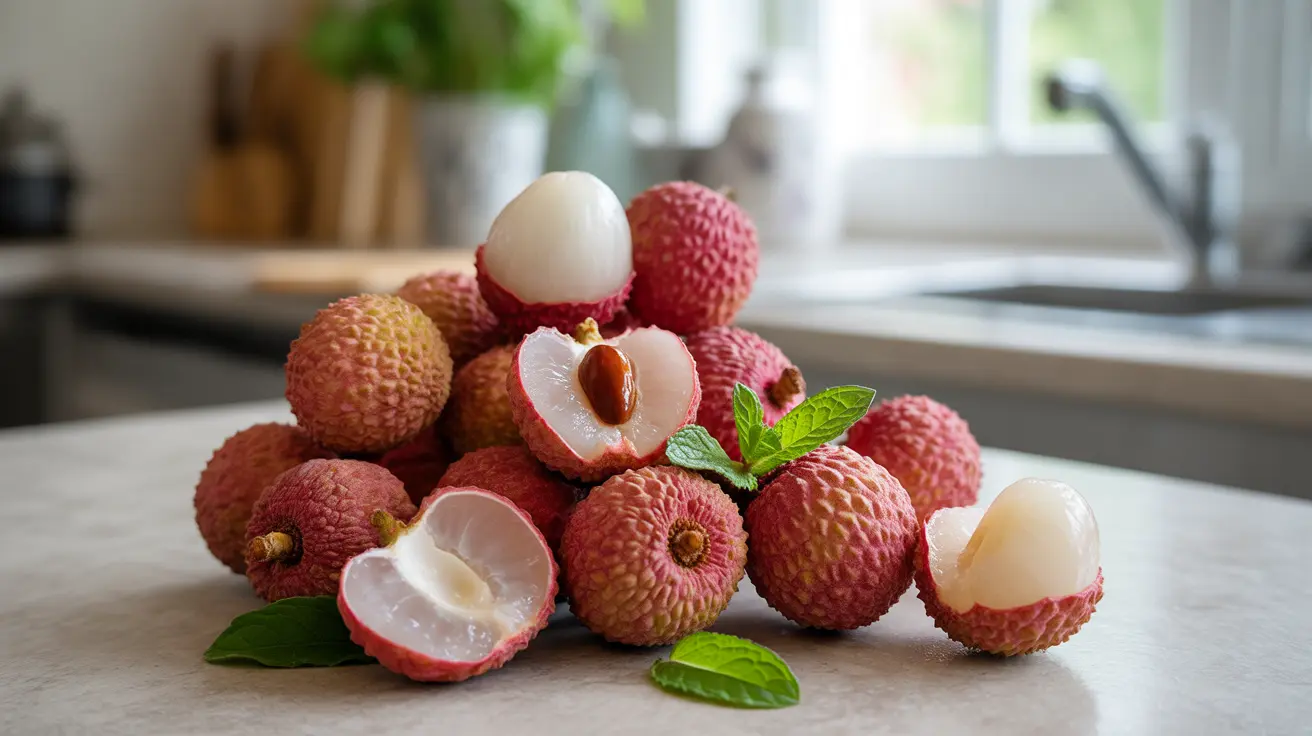Lychee, a small but mighty tropical fruit, has been captivating taste buds across the world with its sweet, floral flavor and impressive nutritional profile. Native to Southeast Asia, this exotic fruit is not only delicious but also offers a remarkable array of health benefits that make it a valuable addition to any balanced diet.
With its translucent white flesh encased in a rough, pink-red shell, lychee provides essential vitamins, minerals, and antioxidants that support overall wellness. From boosting immune function to promoting heart health, this tropical gem deserves recognition as more than just a sweet treat.
Nutritional Profile of Lychee
Lychee stands out among tropical fruits for its exceptional nutritional density. A single cup of fresh lychee provides approximately 125 calories while delivering substantial amounts of vitamin C, copper, and potassium. The fruit contains natural sugars that provide quick energy, making it an excellent choice for active individuals.
Beyond its macronutrients, lychee contains powerful plant compounds including oligonol, a unique antioxidant that may offer anti-inflammatory and cardiovascular benefits. The fruit also provides dietary fiber, which supports digestive health and helps maintain stable blood sugar levels.
Immune System and Skin Health Support
One of lychee's most impressive attributes is its extraordinarily high vitamin C content. This tropical fruit contains more vitamin C per serving than many citrus fruits, providing over 100% of the daily recommended intake in just one cup. Vitamin C serves as a crucial antioxidant that strengthens immune defenses by supporting white blood cell function and protecting against oxidative stress.
The vitamin C in lychee also plays a vital role in collagen synthesis, which is essential for maintaining healthy, youthful skin. Regular consumption may help reduce signs of aging, improve skin texture, and promote wound healing. Additionally, the antioxidants in lychee help protect skin cells from damage caused by environmental factors and UV radiation.
Heart Health and Circulation Benefits
Lychee contributes to cardiovascular wellness through multiple mechanisms. The fruit's potassium content helps regulate blood pressure by counteracting the effects of sodium and supporting proper muscle function, including heart muscle contractions. The oligonol antioxidants found in lychee have been studied for their potential to improve blood flow and reduce inflammation in blood vessels.
The copper present in lychee supports the formation of red blood cells and helps maintain healthy circulation throughout the body. This mineral also plays a role in iron absorption, ensuring optimal oxygen transport to tissues and organs.
Hydration and Electrolyte Balance
With its high water content, lychee serves as an excellent natural hydrator, especially beneficial during hot weather or after physical activity. The fruit's natural electrolytes, including potassium and magnesium, help maintain proper fluid balance within cells and support optimal muscle and nerve function.
This natural hydration benefit makes lychee particularly valuable for athletes or individuals living in warm climates, providing both refreshment and essential nutrients in a naturally sweet package.
Safety Considerations and Potential Side Effects
While lychee is generally safe for most people, there are important considerations to keep in mind. The fruit's natural sugar content, though accompanied by fiber and nutrients, means portion control is important for individuals monitoring their carbohydrate intake. Consuming large quantities may lead to digestive discomfort in some people.
Unripe lychees contain compounds that can be harmful, particularly for children, and have been linked to a condition called hypoglycemic encephalopathy in some regions where malnourished children consumed large quantities of unripe fruit. Always choose fully ripe lychees with pink-red skin and avoid those that appear green or unripe.
Some individuals may experience allergic reactions to lychee, particularly those with sensitivities to other tropical fruits. Symptoms may include itching, swelling, or digestive issues. If you experience any adverse reactions, discontinue consumption and consult with a healthcare provider.
Frequently Asked Questions
What are the main health benefits of eating lychee fruit, and how does it compare to other fruits?
Lychee offers exceptional vitamin C content, exceeding that of oranges and many other fruits, along with powerful antioxidants like oligonol. Compared to other tropical fruits, lychee provides superior immune support, cardiovascular benefits, and skin health promotion. Its unique combination of copper, potassium, and plant compounds sets it apart from common fruits like apples or bananas.
Is lychee good for people with diabetes or those watching their sugar intake?
Lychee contains natural sugars and should be consumed in moderation by people with diabetes. However, its fiber content and antioxidants may help slow sugar absorption. Individuals managing blood sugar should monitor their response to lychee and consider it as part of their total carbohydrate intake. Consulting with a healthcare provider or nutritionist is recommended for personalized guidance.
How much vitamin C is in lychee, and what does it do for your immune system and skin?
One cup of lychee provides approximately 136 milligrams of vitamin C, which exceeds 100% of the daily recommended intake. This vitamin C strengthens immune function by supporting white blood cell activity and provides antioxidant protection. For skin health, vitamin C promotes collagen production, reduces signs of aging, and protects against environmental damage.
Are there any side effects or risks from eating too much lychee?
Excessive lychee consumption may cause digestive discomfort, blood sugar spikes, or contribute to weight gain due to its natural sugar content. Unripe lychees pose particular risks and should be avoided entirely. Some people may experience allergic reactions. Moderation is key, with most experts recommending no more than 10-12 lychees per day for healthy adults.
What are the nutrients in lychee, and how can they help with heart health and hydration?
Lychee contains vitamin C, potassium, copper, dietary fiber, and unique antioxidants like oligonol. For heart health, potassium helps regulate blood pressure, while oligonol may improve circulation and reduce inflammation. The high water content and natural electrolytes support hydration and proper fluid balance. Copper aids in red blood cell formation, supporting cardiovascular circulation.




